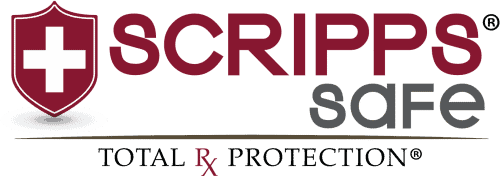Drug diversion is a major problem in the healthcare systems and the pharmaceutical industries. It is both a legal and medical concept that involves transferring a controlled substance that is legally prescribed by the person who got the prescription to someone else for illicit use. The definition might vary slightly across different jurisdictions. However, this transfer of controlled drugs does not always constitute diversion. For instance, if a child gets a prescription, it is expected that an adult administers the drug. This doesn’t constitute diversion. In a real sense, drug diversion is more about diverting the drug from its original medical and lawful purpose to an illicit purpose. How this happens is the transfer from the person that got the prescription to another person. Some jurisdictions have drug diversion programs for people that break the drug diversion laws for the first time. In this case, they do not undergo trial by the criminal justice system, but they instead get an education on the subject and rehabilitation.
The major issue with drug diversion within a pharmacy is prescription drug theft. Most of the time, the perpetrators are usually someone that the pharmacy employs, but it can also be other people with access to the pharmacy. The group of suspects is usually small. However, depending on certain factors such as the pharmacy policy, personnel policy of the duty manager, or the state administrative rules, the group of suspects can be larger than usual.
Ideally, a good pharmacy manager will restrict the movement of other people from going behind the counter. However, in cases where they legitimately have a reason to go behind the counter, such as telephone or computer installation, or pharmacy maintenance, they must be under constant supervision. These visits cannot be regular; it has to be to the barest minimum.
Anybody can be involved in drug diversion, even the so-called computer technicians and repair persons. You shouldn’t have an exemption for any occupation that you allow them to go behind your counter without supervision. Although law enforcement officers usually don’t have a reason to go behind your counter and into your work area except in rare situations such as an emergency, medical need, or need to investigate a crime scene (usually after a robbery or burglary). If this is the case, they also need to be under supervision the whole time they are there.
This shows how serious you should get about preventing drug diversion. However, if you already suspect that there are internal drug diversions within your pharmacy already, then you need to take action.
What to do if there’s internal drug diversion in your pharmacy?
- Howmanycasesofdiversionhaveyouidentifiedpreviously?
- Doyouspendtimereviewingreportsrelatedtodiversion?
- Isthereanactivediversioncommitteeinyourpharmacy?
- Haveyoureviewedyourprocessesfordiversiondetection?
These are some of the questions you have to ask yourself when dealing with possible drug diversion cases within your pharmacy. From then, you should take the following steps:
- Install a narcotics vault with a covert camera system
You must protect the most vulnerable drugs from diversion in your pharmacy, and the best way to do this is by installing a narcotics vault. This vault will serve as protection for those substances with you and very few other trusted employees who have access to it. So, even if there’s a case of drug diversion, it will be easy to narrow it down to the suspects. Also, the vault would have a covert camera system that helps you to keep track of the drugs as they go in and out of the vault and who is taking them. - Assemble a drug diversion team
You should get a drug diversion response team to your pharmacy as soon as you suspect internal drug diversion. This team should consist of a medical diversion prevention coordinator, either a certified pharmacy technician or a pharmacist. They will be in charge of conducting educational campaigns, supervising the drug diversion intervention and response team’s work, and will also help with investigating case reports. - Make use of a waste retrieval system after using injectable opioids for patient care.
You must have a very strict policy that ensures that all the drugs that you take out but did not use or didn’t administer get back into the controlled substance vault within your pharmacy. It is also essential that it is under 24 hours surveillance of a camera. This will help you to reconcile your anesthesia and Pyxis records. - Don’t tolerate theft of any kind of drug.
Prescription drugs or not, you should never tolerate any form of drug theft or mishandling of drugs. You have to make sure that your workers are there to properly witness another worker disposing of a drug that didn’t get to a patient. Your workers should undergo a pre-employment drug screening, which should serve as a basis for employing them. Afterward, you should educate your workers regularly on the dangers of misusing drugs and addiction to drugs. - Note those areas of your pharmacy that are very vulnerable and keep track of them.
There are most likely one or two areas within your organization that are vulnerable and could be the point of drug diversion. It can be anywhere, including the loading dock or the incinerator. You have to look out for all of these places. Also, whenever a report shows a new method of diversion, you must update your policies in a way that reflects this new method. - Bring in law enforcement agencies.
You have to work with the DEA (Drug Enforcement Administration) and the local police in doing this. These officials can go ahead with processing search warrants for the homes, cars, and properties of employees to prove a case. This way, it would be easy for other nearby facilities to get information on whether their prospective hire has had a previous issue where they try to steal drugs. - Ensure there’s a diversion hotline so that workers can always report suspicious persons and behaviors.
Dealing with drug diversion immediately when it happens is important. This is the reason for this approach. Also, this could help prevent a planned diversion. You only have to make sure that the people on the receiving end of the hotline have the necessary qualifications.
Final Thoughts
Drug diversion is something that almost all pharmacists are vulnerable to. It can happen at any time, and anybody can be a part of it. So, you must try as much as possible not to give people a free pass in case they are the ones perpetrating the act.
You must do away with assumptions to effectively handle drug diversions. You should also note that it isn’t only those workers who have access to the drugs that are open to diverting the drugs. If you do find out that one of your employees is guilty of drug diversion. Don’t stop at just layingthem off; make sure they get the help that they need to break their addiction, especially for first-time offenders.

